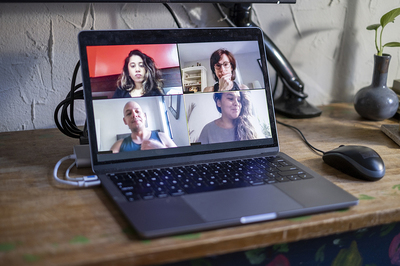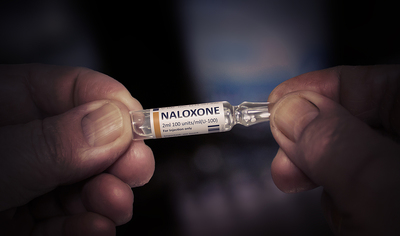
Teletherapy, including group therapy, is more common since the pandemic began.
Overview: The COVID pandemic has led to innovations in substance abuse recovery, including wider availability of telehealth visits, bridge clinics, and programs designed for harm reduction that make getting medications — including buprenorphine and naloxone — easier to get and use at home.
The COVID pandemic has made the problem of substance abuse even worse than ever due to increased stress, layoffs, and forced isolation. The pandemic prompted providers to innovate and get creative about ways in which they could provide safe and effective substance abuse treatment to clients who need those services.
Teletherapy Expands Access to Care and Decreases Isolation
The main way substance abuse treatment has changed is that it has gone virtual with teletherapy. A major advantage to virtual therapy sessions is access. Where people previously had to get child care and transportation to attend an in-person session located within a few miles of their home, they can now access treatment from anywhere if they have a computer or a phone and a way to get online.
Teletherapy greatly increases rural access to treatment services and will probably continue to be used in rural areas when the pandemic finally passes.
Another benefit to virtual therapy is that it can make it easier for many people to share experiences that would otherwise be hard to talk about in person. People are generally more willing to divulge information they consider personal to the relative anonymity of the screen than they are in person, and that sharing may ease loneliness from forced quarantine and aid in recovery.

Naloxone can now be obtained through the mail because of the pandemic.
Bridge Clinics Make Medications Easier to Access
The pandemic has also led to the rise of bridge clinics, which are usually located in underserved communities and billed as being low-threshold and rapid-access. With more people having to confront their substance abuse issues, bridge clinics are often an easy way for people to reach out for help.
It is quite common for those in recovery to take medications like buprenorphine (Suboxone or Sublocade) on a short-term or long-term basis to wean from more harmful and illegal drugs. Traditionally, these medications often had to be administered daily by a medical professional to ensure that they were properly taken and not abused.
Bridge clinics can provide prescriptions for recovery medications that can be taken at home so that a daily visit isn’t needed. Bridge clinics are a vital way for people in treatment to have continuity of their medications while safely distancing.
Harm Reduction
Many of the new innovations that have come about during the pandemic are focused on the concept of harm reduction. Harm reduction saves lives by recognizing that more restrictive forms of treatment may lead to higher levels of failure and deadly overdoses. Daily injections of a substitute medication may not seem like the best course of treatment for someone struggling with substance abuse, but for some, it is the only way to keep them from a destructive cycle of abuse that could lead to death.
Another example of harm reduction is the use of naloxone to reverse an overdose. While naloxone used to be narrowly prescribed, it can now be obtained through the mail and even by family members who want to be ready in case an emergency arises. Even clean needles are a form of harm reduction that could prevent exposure to hepatitis and HIV for some, and they can now be obtained contact-free.
Innovation is necessary in any field, but especially in an essential field like substance abuse treatment. Harris House uses all the latest and most effective methods to treat substance abuse and mental health conditions. Contact us for more information about our programs and how we can help you or a loved one.







